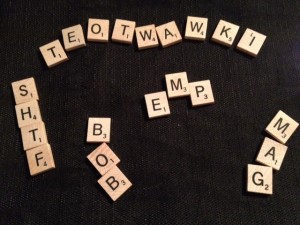Here are some things that should be checked biannually and daylight savings is a convenient reminder.
• Smoke detectors. The batteries are most likely still good, so use them in a remote or some other non-life saving item. Put new ones in the smoke detectors.
•All Kits; change out any seasonal clothing, rotate food if needed.
•Flash lights, if you keep the batteries in the flashlights then makes sure they haven’t started to corrode and make sure the flashlight still works. Another way to keep the batteries near the flashlight but not inside it is to put them in a plastic bag and secure the bag to the flashlight with a rubber-band.
• If you have a generator then this would be a good time to exercise it and do any routine maintenance.
Can you think of anything else that should be done twice a year that could be done at daylight savings time change? If so please add a comment!
Please click here to vote for Prepared Christian as a top Prepper site!
If you liked this article please think about sharing it on the social media listed below, thanks!





